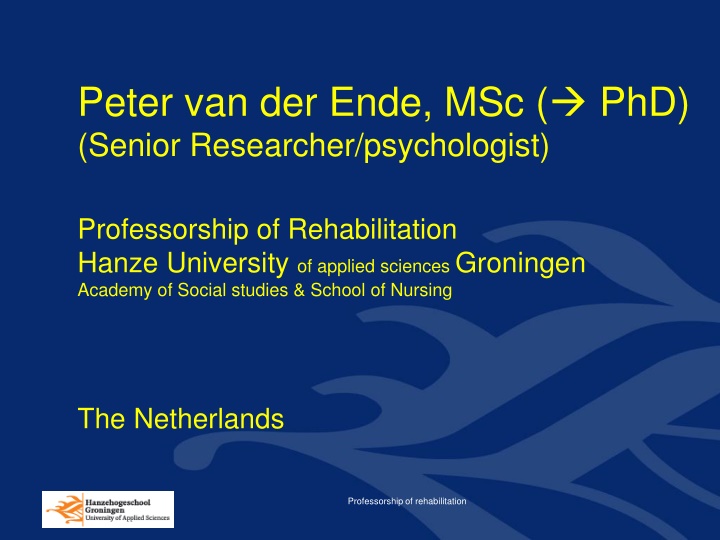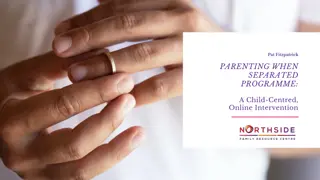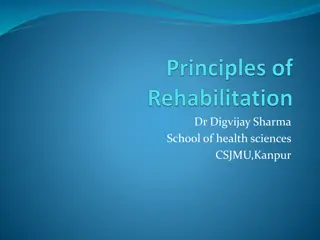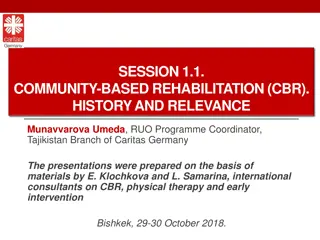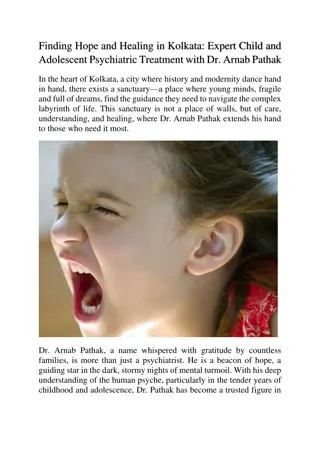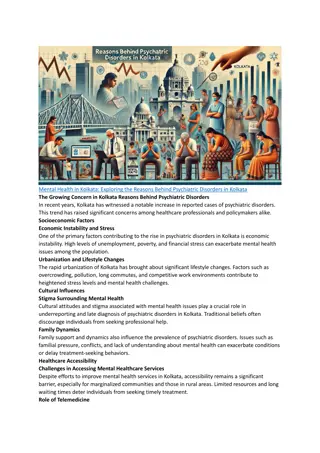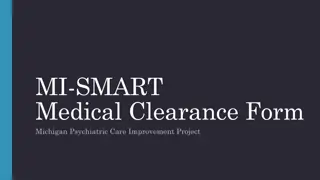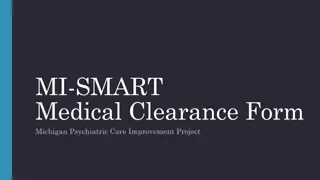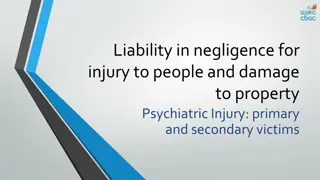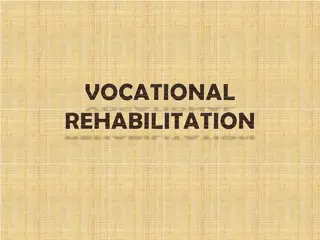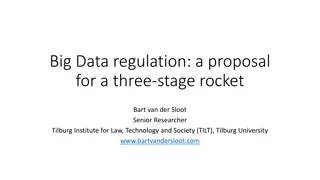Innovative Approach to Parenting and Psychiatric Rehabilitation by Prof. Peter van der Ende
Professor Peter van der Ende, a Senior Researcher and Psychologist at Hanze University in the Netherlands, introduces a new program focusing on Parenting and Psychiatric Rehabilitation. Addressing the challenges faced by individuals with severe mental illnesses in parenting, the program aims to equip mental health professionals with the necessary skills to support parental roles. Through real-life examples and research findings, the initiative sheds light on the importance of balancing personal vulnerabilities with parenting responsibilities, ultimately promoting successful and satisfying parenting experiences.
Download Presentation

Please find below an Image/Link to download the presentation.
The content on the website is provided AS IS for your information and personal use only. It may not be sold, licensed, or shared on other websites without obtaining consent from the author.If you encounter any issues during the download, it is possible that the publisher has removed the file from their server.
You are allowed to download the files provided on this website for personal or commercial use, subject to the condition that they are used lawfully. All files are the property of their respective owners.
The content on the website is provided AS IS for your information and personal use only. It may not be sold, licensed, or shared on other websites without obtaining consent from the author.
E N D
Presentation Transcript
Peter van der Ende, MSc ( PhD) (Senior Researcher/psychologist) Professorship of Rehabilitation Hanze University of applied sciences Groningen Academy of Social studies & School of Nursing The Netherlands Professorship of rehabilitation
Parenting and Psychiatric Rehabilitation: A new approach Professorship of rehabilitation
Content 1. Background Supported parenting and PARSS-program 2. Pilot Research 3. Results 4. Discussion/recommendations Professorship of rehabilitation
1 Background Supported Parenting Half to two-third of the people with SMI have children1 SMI: .9% of the Dutch population (18 -65y) 2 High barrier for the use of social services Mental health professionals need more skills to support parental role Professorship of rehabilitation
Three examples 1. Carla is a single mother with borderline problems. She has been admitted to a psychiatric clinic during half a year and now she is regaining the parenting of her two children from their grandmother. Professorship of rehabilitation
2. Jan is a man with a long-term depression, he wants to give content to the visits to his daughter. Professorship of rehabilitation
3. Karin is a mother of three children who occasionally is psychotic and who brings during those periods her children to their friends parents. Professorship of rehabilitation
Balance Own life with higher vulnerability Parenting Professorship of rehabilitation
Marrie Venderink and Peter van der Ende 3 Program Parenting with Success and Satisfaction (PARSS)
Characteristics Based on the Psychiatric Rehabilitation framework (Farkas & Anthony, 2012) 4 (Choose-Get) - Keep Parent and professional Partly is self-help Program duration one year Professorship of rehabilitation
Three PARSS Workbooks Professorship of rehabilitation
I. Assessing the actual functioning in the parental role Who am I and who is my child? Division and balance between personal time and time for my child Support, self confidence and expectations Professorship of rehabilitation
IIa. Strengthen the parental role for parents living together with their children Social demands on the parent Requirements of the parental role Resources Tune expectations to social environment Professorship of rehabilitation
IIb Take back the parental role for parents living apart from their children Parents needs Possible activities Who has demands and what kind Who supports Professorship of rehabilitation
2 Pilot Research5 One-year pilot research Experimental group: 12 parents (+12 mental health workers and 7 next of kin) Control group 15 parents (+15 mental health workers and 6 next of kin) Professorship of rehabilitation
Research question What are the effects of the program Parenting with Success and Satisfaction (PARSS) on parental functioning in terms of success, satisfaction, empowerment and quality of life? Success: as experienced by mental health workers and next-of-kin Satisfaction: as experienced by the parents Professorship of rehabilitation
Instruments 1 Parenting evaluation (Kendall/Bloomfield, 2004) 6 with subscales: Affection Play Empathy Routines Control Boundaries Pressures Acceptance Learning Balance Organizing Professorship of rehabilitation
Instruments 2 Psychological Empowerment Scale (Akey,et al, 2000) 7 Quality of life: EUROQOL-VAS (Brooks, 1996)8 Professorship of rehabilitation
3a. Results The success in parenting stays on average the same in both groups. The satisfaction in parenting is augmented in the experimental group, not in the control group. Empowerment: the experimental group falls back while the control group improves a little. Professorship of rehabilitation
3b. Results Quality of life: significant improvement in the intervention group (T-test, p<.05) All 12 parents and mental health workers positive about the program Professorship of rehabilitation
4a Discussion PARSS intervention: possibly a useful tool in supporting parents with serious mental illnesses Guided self-help intervention, it could fill an important gap in available psychiatric rehabilitation resources for parents Professorship of rehabilitation
4b Recommendations Add a coordinator on parenting in the mental health organizations Parenting explicitly in the personal file Organize peer support International cooperation in research to build the evidence for parenting programs Professorship of rehabilitation
Email p.c.van.der.ende@pl.hanze.nl Website: www.ouderschap-psychiatrie.nl Professorship of rehabilitation
References 1. Nicholson, J., Biebel, K., Williams, V. F., & Katz-Leavy, J. (2004). Prevalence of parenthood in adults with mental illness: Implications for state and federal policy, programs, and providers. In R. W. Manderscheid & M. J. Henderson (Eds.), Mental health, United States, 2002. DHHS Pub No. (SMA) 3938 (pp. 120 137). Rockville, MD: Substance Abuse and Mental Health Services Administration. 2. Van der Ende, P. C., Van Busschbach, J. T., Wiersma, D., & Korevaar, E. L. (2011). Ouders met ernstige psychische aandoeningen. Epidemiologische gegevens. [Parents with severe mental illness. Epidemiological data]. Tijdschrift voor Psychiatrie, 53(11), 851 856 3. Van der Ende, P. C., Venderink, M. M., & Van Busschbach, J. T. (2010). Parenting with success and satisfaction. A rehabilitation intervention for parents with severe mental illness. Psychiatric Services, 61, 416. doi: 10.1176/appi.ps.61.4.416 4. Anthony, W. A., & Farkas, M. D. (2012). The essential guide to psychiatric rehabilitation practice. Boston: Boston University Center for Psychiatric Rehabilitation Professorship of rehabilitation
References-continued 5. Van der Ende P.C. ,Van Busschbach J.T., Nicholson J., Korevaar, E.L. ,Van Weeghel, J. (2014). Parenting and psychiatric rehabilitation: Can parents with severe mental illness benefit from a new approach? Accepted by Psychiatric Rehabilitation Journal 6. Kendall, S., & Bloomfield, L. (2005). Developing and validating a tool to measure parenting self-efficacy. Journal of Advanced Nursing, 51(2), 174 181. doi: 10.1111/j.1365- 2648.2005.03479.x 7. Akey, T. M., Marquis, J. G., & Ross, M. E. (2000). Validation of scores on the Psychological Empowerment Scale: A measure of empowerment for parents of children with a disability. Educational and Psychological Measurement, 60(3), 419 438. 8. Brooks, R. (1996). Euroqol: The current state of play. Health Policy, 37(1), 53 72. doi: 10.1016/0168-8510(96)00822-6 9. Nicholson, J., Henry, A. D., Clayfield, J., & Phillips, S. (2001) Parenting well when you re depressed: A complete resource for maintaining a healthy family. Oakland, CA: New Harbinger Publications. Professorship of rehabilitation
Learning objectives 1.Getting insight in a program to support parents based on psychiatric rehabilitation. 2. Learning about instruments for measuring outcomes from supported parenting. 3. Getting acquainted with the results of an evaluation study on a program for supported parenting. Professorship of rehabilitation
